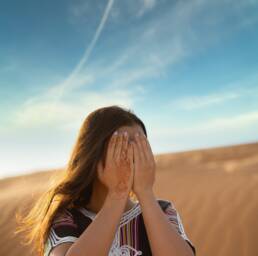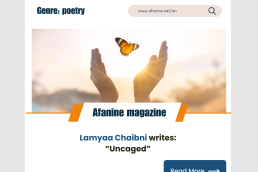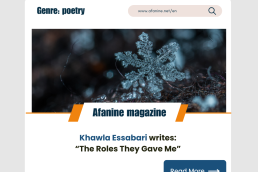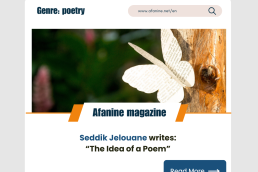Morocco represents an excellent example and great hope for humanity in terms of tolerance and multiculturalism. Numerous factors characterize the multiculturalism situation in Morocco, including plurilingualism and cultural diversity.
I. Morocco, a cultural hub.
A mixture of Arab-Berber-Islamic traditions and modern and universal values of democracy, freedom, and social equality portrays the country’s socio-cultural situation. Morocco is an excellent example of a home to several ethnic groups belonging to different cultures that have forged a common multicultural identity over the centuries.
The Kingdom is a “cultural hub,” a country of meetings for different cultures, civilizations, languages, beliefs, and religions. It has been as such since the dawn of time. Moroccan citizens are proud of the Amazigh, Arab, Jewish, Mediterranean, and African cultural influences [1].
Its geographical location ensures Morocco a privileged place and a particular destiny transforming the country into a crossroads of civilizations and a real “cultural hub” [2]. Due to its internationalization policy, the “cultural hub,” has always been a mixing-pot of diverse cultures. An essential link between the African and European continents. A crossroad where ethnic groups, cultures, and languages as different as they are meet and coexist.
Morocco was at different periods of its millennial history conquered by the Phoenicians, the Carthaginians, the Romans, the Vandals, the Arabs, the Portuguese, the Spanish, and the French [3]. These multiple encounters with other cultures, languages, and races have nurtured in the average Moroccan citizen a will to discover the other.
II. Multiculturalism and plurilingualism in Morocco.
Cultural diversity is not something new to the average Moroccan citizen; it is a part of his past, present, and future. We can detect this notion in tangible and intangible factors (behaviors, communication style, and even religious beliefs).
For example, the national education charter indicates that the teaching of foreign languages, mostly French, English, and Spanish, is mandatory for the country’s development [4]. In Middle Eastern countries, multilingualism represents a threat to Arab identity; however, Moroccan leaders view it as a tool to increase the citizens’ communication skills. Indeed, mastery and use of more than one language confer a social power to these languages’ users, especially women.
Educated, Moroccan women use the mixing of languages or what communication experts call communication codes. We often note the use of French and Darija (Local dialect), what experts call “code-switching,” and occurs when there is a juxtaposition of numerous words formed according to the two languages’ models and grammatical systems. Bilingual speakers often resort to what experts call Franco-Arabic, spoken mainly in everyday situations, as part of verbal interactions between literate speakers or highly educated people. Several factors determine the extent of “code-switching,” such as geography, education, age, gender, and social class. The mixing of communication codes tends to be an urban phenomenon, with most users generally being educated city dwellers with different skills in the two languages involved. The mixture of the two languages demonstrates a spirit of solidarity by simultaneously conveying two traditions and two states of mind.
The Moroccan linguistic landscape is in continuous evolution; for example, today, the English language and culture are slowly but surely taking roots in the Moroccan landscape thanks to immigration. For instance, during the beginning of this millennium, Anglo-Saxon commercial celebrations gradually took their place in Moroccan people’s daily lives. Many people believe that these modern mercantile rites have no place in the national culture as they convey a philosophy contrary to Islamic ethics. However, today, these practices have settled down comfortably in Moroccans’ mores thanks to the digital revolution.
III. Religious dialogue as part of Moroccan Multiculturalism.
Under the leadership of King Mohammed VI, The Kingdom has opted for an inclusive society, aware and proud of its diverse roots. Also, the efforts made by his majesty King Mohammed VI to preserve the religious dialogue are highly important [5]. These efforts made Morocco one of the best examples to follow for several Arab countries, where Islam has maintained its principles while being open to other religions and civilizations. Religious heritage has always been a significant part of Moroccan identity. Moroccan Muslims have never treated non-Muslims (Jews or Christians) as a minority, who were present in all activities and fields, allowing them to carry out their religious cults and exercise their faiths in complete freedom. Morocco has always committed in favor of cultural and religious dialogue, promoting the values carried by this policy, and mobilizing national and international actors around the principles of peace and coexistence. These characteristics make Morocco a diverse nation that accepts other peoples’ beliefs and safeguards the right to worship.
IV. Challenges facing Moroccan Multiculturalism.
Today, the greatest challenge facing Morocco is preserving the essence of its plurality in the face of the effects of the homogenization of a multicultural identity threatened by so many internal and external factors. We can note the instrumentalization of religion by using a political ideology that undermines society. This ideology is a threat to the cultural, popular, and tolerant Moroccan society. The Kingdom and its citizens must protect their cultural wealth; only then will it be possible to strengthen Moroccan multiculturalism foundations.
Reference list :
[1] Morocco. 2020. CULTURAL DIVERSITY IN MOROCCO: AN OMNIPRESENT HISTORY.
[2] Thoughtco. 2020. Geography of Morocco.
Link: https://www.thoughtco.com/geography-of-morocco-1435230
[3] Britannica. 2020. History of Morocco.
Link: https://www.britannica.com/topic/history-of-Morocco
[4] MWN. 2019. Minister: Official Languages are Important, But Foreign Languages are Essential.
Link:https://www.moroccoworldnews.com/2019/05/272641/minister-arabic-languages-amazigh-foreign-languages/
[5] Northafricapost. 2019 .King Mohammed VI puts Morocco at forefront of religious tolerance efforts.
Ahmed Mdarbi
Afanine
مجلة أفانين: هي منصّة إلكترونيّة حرّة، وشاملة، ومتنوّعة، تديرها جمعيّة كتّاب الزيتون والمعهد اللغوي الأمريكي بالدار البيضاء، وتضع على عاتِقها أن تفتحَ نافذةً، للكتّاب والفنّانين في المغرب، نحو آفاق الإبداع. تنشر المجلة أعمالًا أدبية وفنية للكتاب والفنانين الشّباب بالمغرب، بالإضافة إلى مقابلات، وبروفيلات، وفرص، وصور فوتغرافية، وغير ذلك. تروم المجلة تسليط الضّوء على إبداعات الكتاب والفنانين الصّاعدين بالمغرب.





